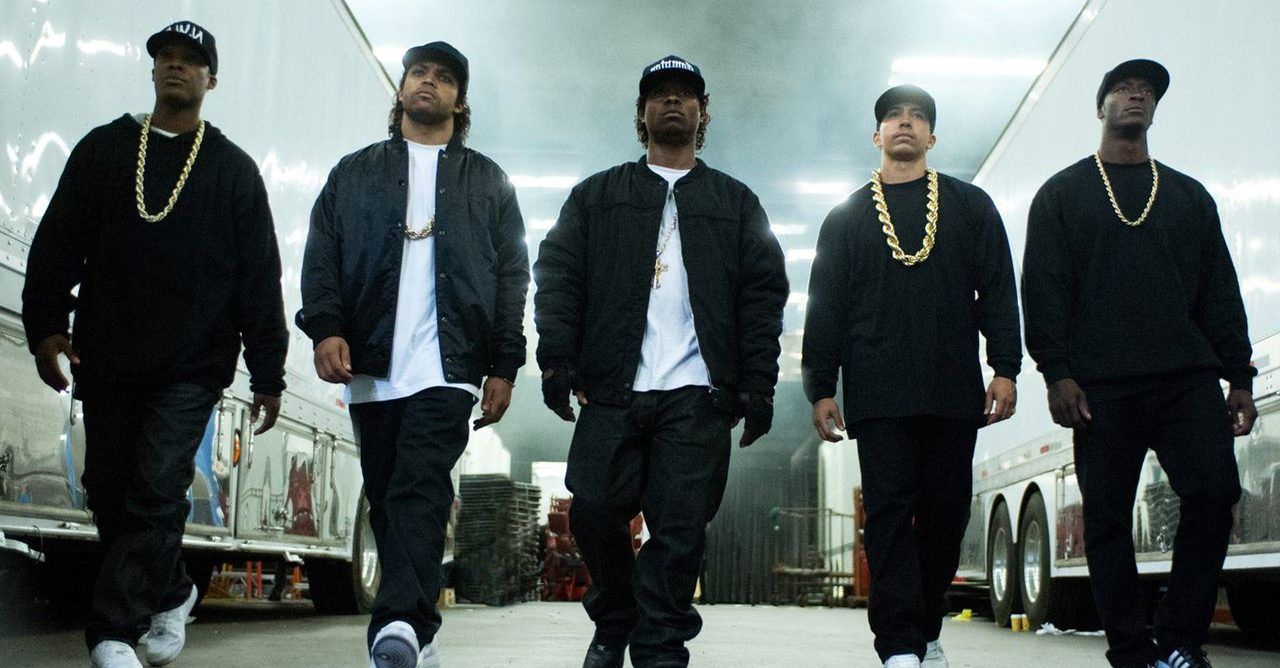Censorship has always been an issue within the music industry, particularly in the United States. Even now, musicians such as Lil Nas X have reportedly found their songs blocked worldwide. Songs both past and present have been subjected to the dreaded and almighty ban, which can simultaneously harm and help the artist's career.
Many of these tracks were banned due to controversial music videos, while others contained politically charged lyrics that were inharmonious with the sensibilities of the era. On occasion, a song's ban may be seen as somewhat justifiable, but more often than not its prohibition is the product of prudishness and conservatism. Here's why these 10 songs were banned in the U.S.
10 Madonna - "Justify My Love"
Legendary pop superstar Madonna is no stranger to causing controversy and continues to stir outrage to this day. Her 1990 song "Justify My Love" was banned by MTV for featuring sexually provocative imagery, including same-sex encounters, which were sadly not widely accepted at the time.
Madonna criticized the ban for its "hypocrisy", arguing that MTV wilfully showed violence against women without issue, but had qualms with her video depicting love between consenting adults.
9 System Of A Down - "Chop Suey!"
Always a socially conscious band, System of Down is currently raising awareness of the plight of Armenians via several new songs. But back in 2001, they found themselves in hot water when their hit song "Chop Suey!" just happened to be released the week before the 9/11 terror attacks. Accordingly, the song was banned by Clear Channel, which is the USA's largest radio conglomerate. This is because the track contains a seemingly prophetic lyric about "self-righteous suicide", which many wrongly associated with suicide bombers.
But as guitarist Daron Malakian explained, the song is actually about the hypocrisy associated with people's causes of death: "Everyone deserves to die. Like, if I were now to die from drug abuse, they might say I deserved it because I abused dangerous drugs", he told Kerrang! magazine at the time.
8 N.W.A. - "Straight Outta Compton"
One of the most influential hip-hip groups of all time, there has been renewed interest in N.W.A in recent years due to the success of 2015 biopic Straight Outta Compton. At the height of their fame in the late '80s, they faced intense scrutiny due to their anti-police lyrics.
MTV banned their song "Straight Outta Compton" due to a backlash from the FBI and a music censorship campaign spearheaded by Tipper Gore, the then wife of Al Gore.
7 The Shirelles - "Will You Still Love Me Tomorrow?"
It seems strange to think that a song which references something as tame as a one night stand would be banned, but 1960 was a very different time indeed. The Shirelles were musical pioneers, becoming the first black girl group to have a number one single in the US.
But "Will You Still Love Me Tomorrow?" was met with controversy due to its incredibly mild sexual references. Subsequently, many radio stations in the US banned the song.
6 John Travolta - "Greased Lightning"
Grease remains one of the most popular musicals of all time. With its vast array of bustling, ostensibly family friendly tunes, it's difficult to fathom why any of the Grease songs would be banned. However, US radio stations banned "Greased Lightning" due to the line "it ain't no s***". The line was later edited and the song returned to airplay.
Moreover, the entire musical is now facing a potential ban due to contemporary analysis of many of the song's problematic lyrics, but perhaps that's a story for another day...
5 Foo Fighters - "Low"
Having been nominated for the Rock and Roll Hall of Fame, Foo Fighters are one of the biggest groups on the planet. But their 2003 single "Low" was banned by MTV.
The video, which features frontman Dave Grohl and actor Jack Black getting up to ridiculous shenanigans in a seedy motel, was considered too debauched for MTV.
4 Billie Holiday - "Strange Fruit"
Sadly, widespread racism in the 1930s meant that many black artists were banned from the airwaves, particularly when they released political songs. Poet Abel Meeropol wrote "Strange Fruit" as a protest against lynchings and the iconic Billie Holiday recorded it in 1939.
With poignant lyrics such as "Blood on the leaves and blood at the root/ Black bodies swingin' in the Southern breeze", the song was not only banned by US radio stations, but Holiday's label, Columbia Records, refused to record it.
3 Game - "Red Nation"
One of the more recent songs on this list, "Red Nation," by hip-hop artist Game and featuring Lil Wayne, was banned in 2011. Both MTV and BET banned the song due to its references to gang culture.
The song's title was deemed a reference to Game's purported ties with LA gang the Bloods. A decade later, the song remains banned by both networks.
2 Neil Young - "This Note's For You"
Canadian rocker Neil Young saw his 1988 hit "This Note's for You", which slams consumerism and large corporations, banned by MTV after a campaign from Michael Jackson's legal team.
They took offense to a scene in the music video in which a Michael Jackson doppelganger's hair catches fire and MTV swiftly banned the video.
1 Nine Inch Nails - "Happiness In Slavery"
Trent Reznor may be enjoying major success now due to his soundtrack work on Oscar-winning movies such as The Social Network and, more recently, Mank, but back in 1992 he was causing swathes of controversy.
Nine Inch Nail's song "Happiness in Slavery" was universally banned due to extreme depictions of violence and torture. We're not too surprised about this one, though many artists have since released similarly violent videos without being banned.

